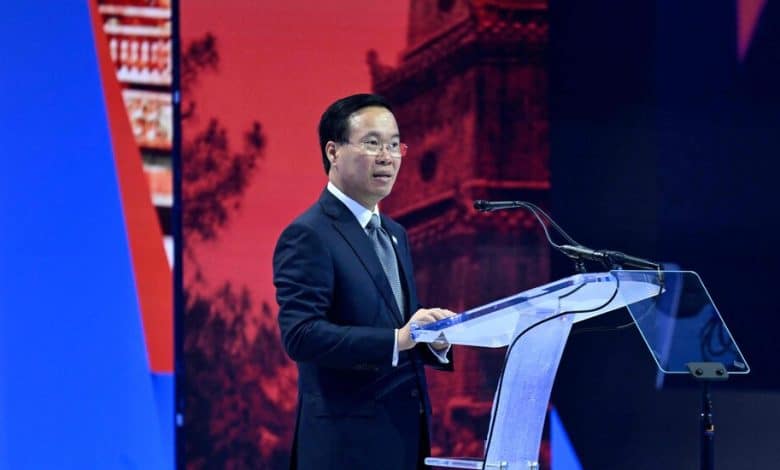Here’s What to Know About Vietnam’s Communist Government

Vietnam’s Communist Party has ruled the country for nearly half a century, often priding itself on unity and longevity. It is one of the world’s last remaining Communist dictatorships.
It has also become one of Asia’s fastest growing economies and a pivotal player in the growing U.S.-China rivalry and has been adept at balancing its interests between the two powers. In recent years, many foreign companies and investors have flocked to Vietnam, which has touted its political stability in presenting itself as an alternative to China as a manufacturing hub.
But the announcement Wednesday that President Vo Van Thuong had resigned, the second president to step down in a little over a year amid allegations of corruption, has undercut that message of stability even though the post is largely a ceremonial one. The resignation could spook investors.
Here is what you need to know about Vietnam’s leadership:
Who is the person in charge?
Unlike China, Vietnam, a country of 99.5 million people, does not have a paramount leader. Instead it is governed by “four pillars” of leadership: the general secretary of the Communist Party, the president, the chairperson of Parliament and the prime minister.
Power largely resides with Nguyen Phu Trong, the Communist Party head, who is serving an unprecedented third five-year term as party chief.